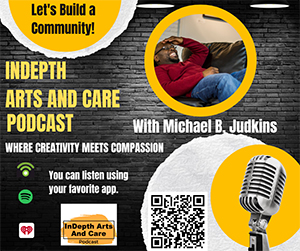By: Anita Kelly, Clinical Contract Advisor, Magellan Behavioral Health of Pennsylvania
It is often said that addiction is a family disease. Some families may take umbrage at this statement as they are not the ones using substances; it is most likely one or two family members. However, families are impacted by every member of their clan, especially when someone is suffering from any type of disease or disorder.
This notion is supported by the Family Systems Theory (Kerr and Bowen, 1988)¹ which is a theory of human behavior that defines the family unit as a complex social system, in which members interact to influence each other’s behavior. Family members interconnect, allowing us to view the system as a whole rather than as individual elements, and families operate as a unit. What one member of the pack does affects the whole group. A family system is like a machine; if one cog isn’t working to capacity, the rest of the machine feels the impact. If one family member is causing upheaval, the whole family feels the effects, in varying degrees, but the impact is still there. The family member who uses substances is often not the only family member in need of counseling. Everyone benefits from therapy, on an individual level and as a group.
The definition of family varies from person to person. One person may consider their family of origin their one and only concept of “family” while another person may consider some close friends and confidants as their family. This is sometimes referred to as “family of choice,” as this illustrates the commitment of chosen, rather than fixed, relationships and ties of intimacy, care, and support. The non-heterosexual form of families of choice is often seen as the clearest example of this phenomenon.²
Sometimes, however, bridges have been burned and family members are not ready to engage in helping their loved one during their treatment. Sometimes, those bridges are irreparable and family members will never re-engage with their loved one, even after they have been drug-free for several years. And then sometimes, amends are made by both the substance user and their family members, and they learn to trust each other and work together to heal old wounds. For those who do not have blood relatives in their life for whatever reason, their family of choice can be a supportive influence in one’s treatment and recovery.
People in recovery have higher rates of success when supported by caring, committed family members. It’s evidence of the value of being an active part of a loved one’s recovery from the start and defining what that support looks like. Supports can change as time goes on, but it is important to recognize that no matter who is providing that active support, treatment and recovery efforts may be more effective when one has a “cheerleader” on their side.
Parents and family members who participate in their own treatment while their loved one is in rehab are more likely to understand the dynamics of the addiction and recovery process and therefore, are better prepared to deal with the ups and downs of recovery. These ups and downs may include a slip or relapse, or even the discovery of other challenges, sometimes physical or sometimes mental health related. Substance use can mask so many other situations and once the substance is removed for a time, other challenges may come to light, including family system challenges.
There are several treatment providers who also offer counseling for family members and there are community-based programs like Alanon, that offer tough love and support to families who have a substance-using member. Regardless of where the help comes from, family members are encouraged to seek help and support. Again, families are a unit, and what one member says or does impacts the rest of the family.
Help for families is just a phone call away. Find the number for your local Alanon group at www.al-anon.org or go to www.pa.gov and look at their Resources for Families link. Or check out the Magellan Behavioral Health of Pennsylvania website at www.magellanofpa.com.
Other resources include: www.samhsa.gov/find-help/national-helpline, www.alcohol.org/helping-an-alcoholic/family-member-or-relative/
Information provided to TVL by:
Aubrey Proud
Director, Communications and Community Relations
Magellan Behavioral Health of Pennsylvania
Magellan Healthcare Division
https://www.magellanhealthcare.com/
https://www.magellanofpa.com/





